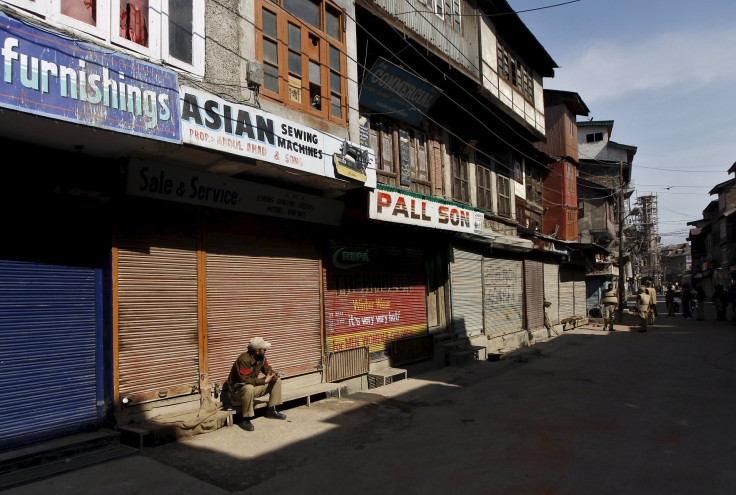Kashmir On Strike Against Plan To Rehabilitate Displaced Hindus In 'Israel-Type Settlements'

Protests erupted in the north Indian state of Jammu and Kashmir and several shops and businesses in the region were shuttered on Saturday as local separatist groups called for a strike against the federal government plan, announced earlier this week, to resettle tens of thousands of Hindus in new townships in the state. At least 200,000 Hindus, known as Kashmiri Pandits, were forced to flee the state in the early 1990s following persecution by jihadists, and are currently living elsewhere in India.
The decision to resettle these displaced Hindus came less than two months after India’s ruling Bharatiya Janata Party (BJP) announced the formation of a coalition government in the state. The proposed plan calls for the creation of “composite townships,” which will be self-contained, heavily guarded colonies for Hindus who had fled their homes. Although the details of how much land would be needed for these settlements and when their construction would begin have not yet been finalized, the township would reportedly be built on land acquired from farmers.
Kashmiri separatist leaders have opposed the plans, reportedly labeling them a conspiracy to divide the region’s population along religious lines. Many also drew parallels between the proposed settlements and Israel’s occupation of Palestinian territories.
“In the garb of the return of Kashmiri Pandits, a state within a state is being created. It is a ploy to make Kashmir the next Palestine and rob people of their land,” Syed Ali Shah Geelani, chairman of the separatist group All Parties Hurriyat Conference said, according to a report by NDTV, an Indian news network.
However, Mufti Mohammad Sayeed, the state's chief minister, sought to dispel the notion that the government was planning to create "Israel-type settlements."
"I have told the home minister that they can't stay separately. If it happens then everyone will stay together. It is a symbol of our diversity," Sayeed reportedly said.
Several Kashmiri Pandits have also expressed doubts over the government’s plan, alleging that it would leave them vulnerable to attacks.
“At present we have no idea what this composite colony would look like. Would there be people of other cultures or religions in it or it would be specific to Kashmiri Pandits? In the latter case, it won’t be composite,” Sanjay Tickoo, president of the Kashmiri Pandit Sangharsh Samiti, reportedly said. “It is simply making Pandits vulnerable and under such circumstances nobody will come back.”
© Copyright IBTimes 2024. All rights reserved.






















